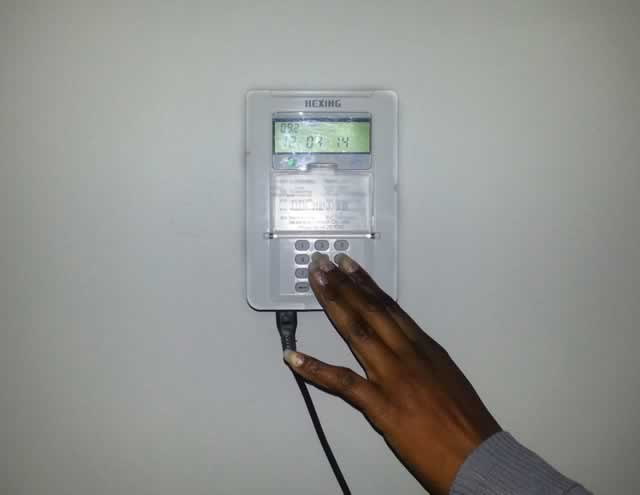Zesa acquires more prepaid metres

Business Reporter
POWER utility Zesa Holdings has acquired 140 000 prepaid metres with more connections expected by June this year, company spokesperson Mr Fullard Gwasira said.
Under the Zim-Asset blueprint, Zesa is targeting to install 800 000 prepaid metres by 2018 and has already connected 550 000 customers.
“We are expecting the second batch of prepaid metres and hopefully, by end of the second quarter, about 140 000 additional customers will be on prepaid,” Mr Gwasira told a Zim-Asset workshop recently.
He said prepaid metering will improve cash flows for the company while it will enable it to pay for imports. Zesa is importing up to 450MW of electricity from Zambia and Mozambique.
Zesa introduced prepaid metering technology to replace the conventional billing system that had been posing challenges to the Zimbabwe Electricity Transmission and Distribution Company, a subsidiary of Zesa Holdings.
Mr Gwasira said the programme delayed as the company did not have adequate funding, but the programme is now able to fund itself.
“Through the prepaid metering system, we have secured our revenue income stream. We are now able to complete the project,” he said.
Mr Gwasira said under the second phase of the prepaid metering system, the company has been running a pilot project for the installation of smart meters which is a more intelligent prepaid metering system highly sensitive to system tampering.
He said to this end, the remaining balance of the programme will include smart meters which have been piloted in some residential areas as well as industrial areas.
Mr Gwasira said the power utility last year lost in excess of $12 million due to vandalism of copper cables.
In terms of transformers, Mr Gwasira said the utility had a backlog of 3 000 transformers.
However, Zesa Enterprises which is responsible for manufacturing the transformers was now operating 24 hours to meet the backlog.
Zimbabwe has been experiencing severe power cuts with many households suffering up to 18-hour blackouts.
The rolling cuts were also hurting businesses, particularly mining companies.
However, Zimbabwe’s power situation improved significantly in the past four weeks owing to a number of initiatives put in place by power utility Zesa Holdings, but this is not sustainable at current electricity tariff rate.
Mr Gwasira said imports and improved generation at some local units has helped to increase availability of electricity.
Mr Gwasira said the tariff increase would enable the power utility to generate enough revenue to finance capital projects and imports. The Zimbabwe Energy Regulatory Authority is expected to approve the proposed electricity tariff increase requested by Zesa.












Comments